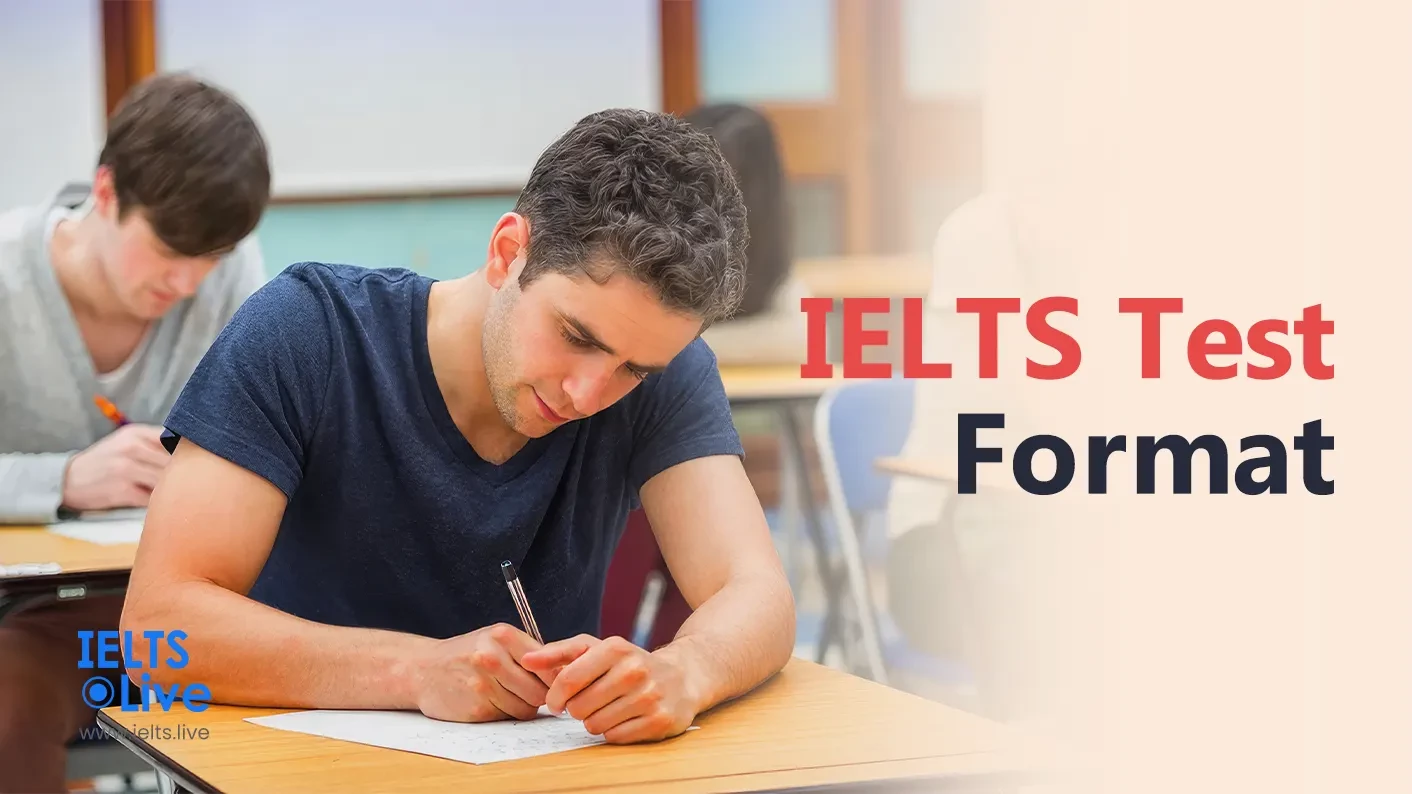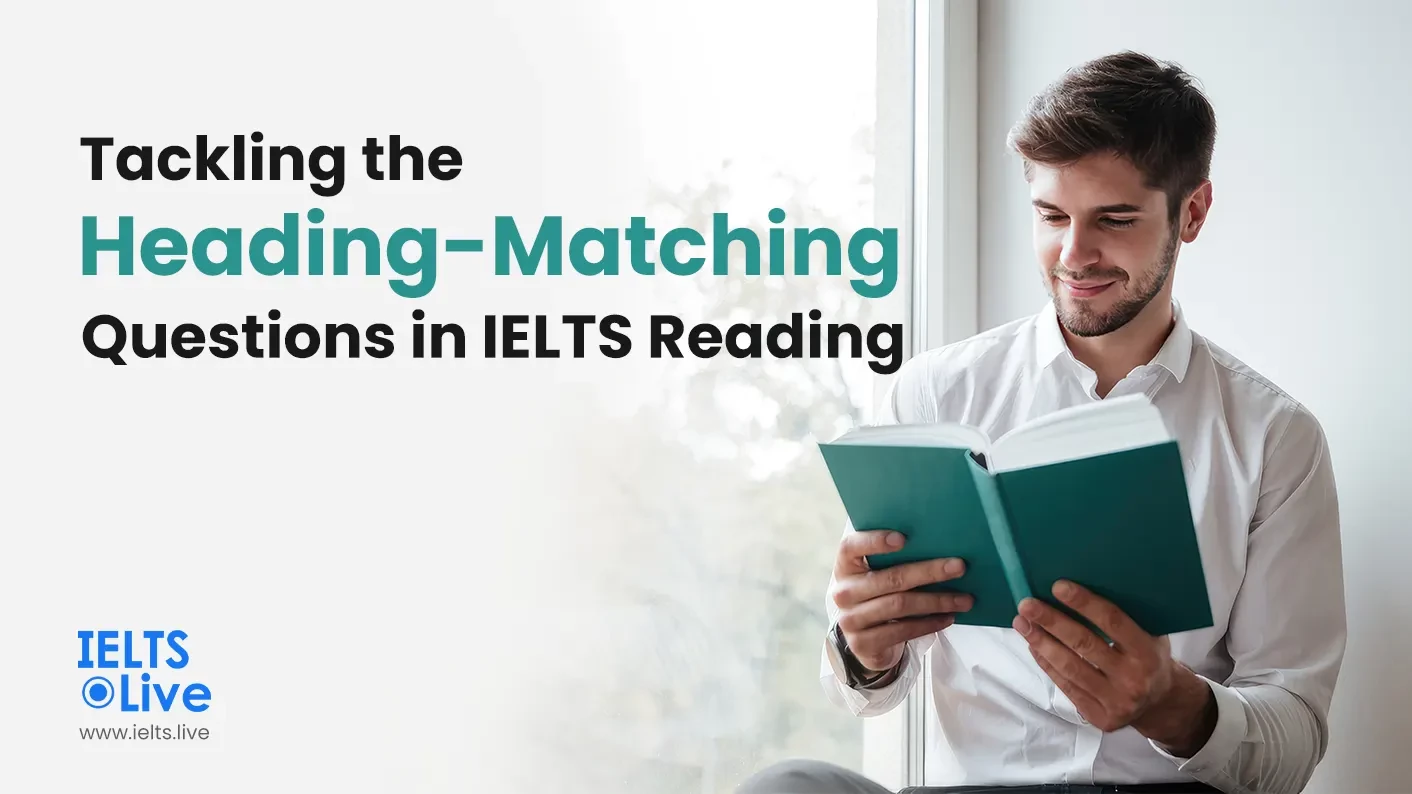
If you're an aspiring global citizen, seeking to embark on a journey of higher education, immigration, or professional growth, then IELTS could be the key to unlock your dreams.
However, with its unique structure and rigorous evaluation, the IELTS test can be quite daunting.
Fear not!
In this article, we'll take a deeper look at the IELTS test format and go through each section in detail to help you understand what to expect and how to prepare for success.
What is the IELTS test?
The International English Language Testing System (IELTS) is one of the most generally accepted English language proficiency tests for non-native speakers who wish to study or work in an English-speaking country.
The test assesses your ability to successfully communicate in English through four sections: listening, reading, writing, and speaking.
Why Take the IELTS test?
Being one of the few of the most widely accepted proficiency tests globally, IELTS holds a special distinction. There are numerous reasons to take the IELTS exam, especially if you intend to study or work in an English-speaking nation. Here are a few of the main reasons:
- Study abroad: Many universities and colleges need an IELTS score as proof of English language ability if you want to study at an English-speaking university or college.
- Work abroad: If you want to work in an English-speaking country, many companies will want an IELTS score to indicate that you have the language abilities required to do your job effectively.
- Immigration: A high IELTS score is required for several countries, including Australia, Canada, New Zealand, and the United Kingdom, as part of the immigration process.
The 4 Sections of the IELTS Test
The IELTS exam assesses all four skills that are required to be a proficient user of a certain language. The four segments are Listening, Reading, Writing, and Speaking. The total test time is 2 hours and 45 minutes.
- Listening - (30 minutes)
- Reading - (60 minutes)
- Writing- (60 minutes)
- Speaking - (11 to 15 minutes)
In the paper-based exam, you get extra 10 minutes to transfer your answers for the listening test.
IELTS test types
There are two types of IELTS exams based on the needs of the examinee. Such as:
General IELTS exam
Academic IELTS exam
The IELTS General Training exam evaluates your English proficiency in an everyday context whereas the IELTS Academic exam is to assess your English language ability in an academic setting.
Difference between IELTS General and Academic Test
What differentiates the two tests is the reading and writing modules. Listening and speaking are the same for both tests.
In IELTS academic the Articles that you read are taken from books, magazines, newspapers, and journals which are more appropriate for people entering a university or research work.
On the other hand, in IELTS general training, the texts that you have to answer from are usually shorter and on topics that we come across daily. A similar scenario is observed when it comes to the writing section as well.
Now let’s look at the 4 sections in detail:
IELTS Listening Test Format
The listening section of the IELTS test measures your ability to understand spoken English in various situations. It lasts for 30 minutes, and it is divided into four sections, each section has ten questions, and they get progressively more challenging. The four sections are:
a) Section 1: In this section, you will hear a conversation between two people, such as a dialogue between a customer and a shopkeeper or a conversation between friends. The conversation is usually related to everyday situations, such as ordering food or asking for directions.
You may also like: A Comprehensive Guide to Preparing for the IELTS Listening Test
b) Section 2: In this section, you will hear a monologue, such as a speech or a lecture. The topic is usually related to everyday situations, such as the weather or transportation.
c) Section 3: In this section, you will hear a conversation between two or more people, such as a discussion between students and their professors. The topic is usually related to education or training, such as a lecture on a specific subject.
d) Section 4: In this section, you will hear a monologue, such as a lecture or a speech. The topic is usually related to academic subjects, such as a university lecture or a scientific presentation
IELTS Reading Test Format
The reading section of the IELTS test measures your ability to read and understand written English. It lasts for 60 minutes and is divided into three sections, each section has 13-14 questions, and they get progressively more challenging. The three sections are:
a) Section 1: In this section, you will read a passage related to everyday situations, such as a newspaper article or an advertisement. The passage could be about anything from shopping to leisure activities.
b) Section 2: In this section, you will read a passage related to work, such as a job description or a company report. The passage could be about anything from business to technology.
You may also like: Cracking the IELTS Reading Code: Insider Tips and Strategies For a High Score
c) Section 3: In this section, you will read a passage related to academic subjects, such as a research paper or a scientific article. The passage could be about anything from history to physics.
IELTS Writing Test Format
The writing section of the IELTS test measures your ability to write in English. It lasts for 60 minutes and is divided into two tasks.
a) Task 1: In this task, you will be given a graph, chart, or diagram, and you will be asked to describe and summarize the information in your own words. You should include an overview and highlight the significant trends or patterns. The task tests your ability to interpret and present data effectively.
You may also like: 7 Common Mistakes In IELTS Writing And How To Overcome Them
b) Task 2: In this task, you will be given a topic, and you will be asked to write an essay expressing your opinion or presenting an argument. You should provide evidence to support your arguments, and you should demonstrate a range of vocabulary and grammar structures. The task tests your ability to express your ideas clearly and coherently in writing.
IELTS Speaking Test Format
The speaking section of the IELTS test measures your ability to speak in English. It lasts for 11-14 minutes and is divided into three parts.
a) Part 1: In this part, the examiner will ask you general questions about yourself, your family, your hobbies, and your interests. The questions are designed to help you feel comfortable and to give the examiner an idea of your level of spoken English.
You may also like: Revolutionize Your IELTS Speaking Test: The Unconventional Strategies That Guarantee Success!
b) Part 2: In this part, you will be given a topic, and you will be asked to speak for 1-2 minutes on the topic. You will have one minute to prepare, and you should use this time to think about what you want to say
c) Part 3: Section 3 of the IELTS speaking test consists of a 4-5 minute conversation between the candidate and the examiner about a variety of topics linked to the theme introduced in Section 2.
The examiner will ask 5-7 questions to obtain more information about the candidate's opinions and ideas, and the candidate is required to respond with elaborate and extended replies that use a variety of vocabulary and grammar structures.
This phase evaluates the candidate's ability to articulate opinions, analyze facts, and hypothesize on abstract themes, and candidates should actively participate in the discussion and strive to explain their ideas logically.
Candidates should practice discussing a variety of themes, improve their language abilities by reading and listening, and seek feedback to prepare for Section 3.
To summarize, taking the IELTS exam is essential if you want to pursue academic or professional prospects in English-speaking nations. Candidates must be familiar with the IELTS test format and the criteria of each segment, as well as continuously prepare and practice to develop their language skills.
Candidates can approach the exam with confidence and achieve their objectives by extending their vocabulary, improving their grammar, and developing their critical thinking skills. The IELTS exam can be a valuable tool for personal and professional growth.








0 COMMENTS